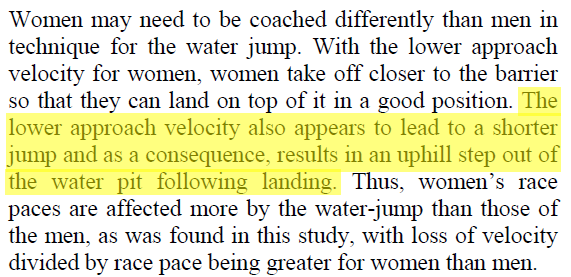KINS 165
Library Instruction - Tim Miller
tim.miller@humboldt.edu
707.826.4959 - Library 02 (lower level)
Foundations in Kinesiology
About Me
- HSU Undergrad - 1995-2000
- HSU Kins Grad- 2002-2005
- Distance runner/coach
- Teaching assistant
- Jail library
- Academic library
Kinesiology subject librarian
Research Basics
-
Organization
- attention to detail
- patience
- time & exploration
- online form
- allows you to save your research
- results are emailed to you
- requirement for your class
Research Assignment
Research Guide
- portal to Kinesiology research
- recommended databases
- tutorial videos
- tips & tricks
Research Guide
- Where is it?
-
Where is the ?
- How do I save my work?
- http://libguides.humboldt.edu/kins
Research Assignment
What is plagiarism?
- copying work that isn't your own
- not giving credit for ideas or content that you got from another source
- submitting another person's work as your own
- reproducing another person's work and claiming it as your own
HSU Academic Honesty Policy:
http://www.humboldt.edu/studentrights/academic_honesty.php
How do you avoid plagiarism?
-
credit any sources that you quote or paraphrase
- quote: using the exact language
- paraphrase: re-wording the concept in your own words
-
don't cheat!
- only turn in work that you created yourself
Quoting:

Hunter, Lindsay and Anderson (2008) found that a, "lower approach velocity also appears to lead to a shorter jump and as a consequence, results in an uphill step out of the water pit following landing."
Excerpt from the paper I wrote about the steeplechase.
The text from a paper I found about the differences in steeplechase hurdling technique between men and women
Hunter, I., Lindsay, B. K., & Andersen, K. R. (2008). Gender differences and biomechanics in the 3000m steeplechase water jump. Journal Of Sports Science & Medicine, 7 (2), 218-222.
Paraphrasing:

The text from a paper I found about the differences in hurdling technique between men and women
Excerpt from the paper I wrote about the steeplechase.
Hunter, Lindsay and Anderson (2008) found that a slower approach results in a shorter jump, which requires running up the ramp and out of the water pit.
Hunter, I., Lindsay, B. K., & Andersen, K. R. (2008). Gender differences and biomechanics in the 3000m steeplechase water jump. Journal Of Sports Science & Medicine, 7 (2), 218-222.

The text from a paper I found about the differences in hurdling technique between men and women
Excerpt from the paper I wrote about the steeplechase.
A slower approach velocity results in a shorter jump, which requires running up the ramp and out of the water pit.
Plagiarism
There is no citation!!
Quiz: Plagiarism or not?
Hunter, I., Lindsay, B. K., & Andersen, K. R. (2008). Gender differences and biomechanics in the 3000m steeplechase water jump. Journal Of Sports Science & Medicine, 7 (2), 218-222.

The text from a paper I found about the differences in hurdling technique between men and women
Excerpt from the paper I wrote about the steeplechase.
Hunter, Lindsay and Anderson (2008) found a correlation between a slower approach velocity and a shorter jump, which "results in an uphill step out of the water pit following landing."
Not Plagiarism
citation and quotation marks
Quiz: Plagiarism or not?
Hunter, I., Lindsay, B. K., & Andersen, K. R. (2008). Gender differences and biomechanics in the 3000m steeplechase water jump. Journal Of Sports Science & Medicine, 7 (2), 218-222.

The text from a paper I found about the differences in hurdling technique between men and women
Excerpt from the paper I wrote about the steeplechase.
Hunter, Lindsay and Anderson (2008) found that the lower approach velocity leads to a shorter jump and results in an uphill step out of the water pit following landing.
Plagiarism
Should be a quote- not paraphrasing.
Quiz: Plagiarism or not?
Hunter, I., Lindsay, B. K., & Andersen, K. R. (2008). Gender differences and biomechanics in the 3000m steeplechase water jump. Journal Of Sports Science & Medicine, 7 (2), 218-222.
Why quote?
- When the passage you want to use is short and difficult to paraphrase
- When the author uses specific wording that you want to emphasize
- To mix things up- use a both quotations and paraphrasing to provide variety to the reader
Why paraphrase?
- When the passage you want to use is very long
- When you want to use more than one concept
- To mix things up- use a both quotations and paraphrasing to provide variety to the reader
KINS 165
By Tim Miller
KINS 165
- 1,211





